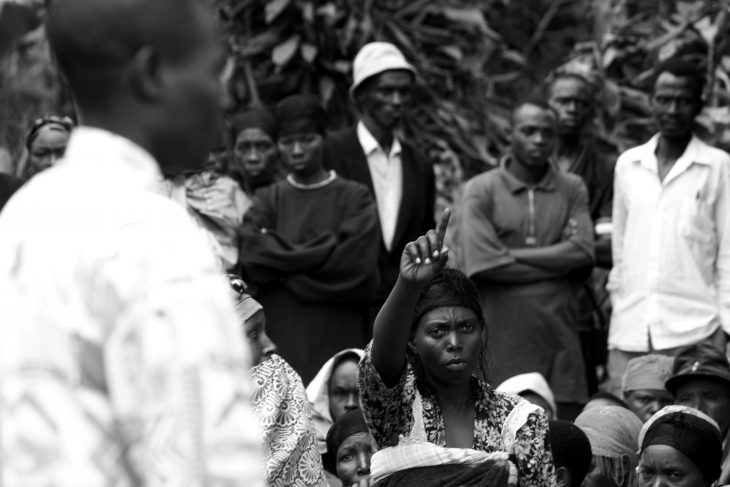This week we bring you JusticeInfo.Net Head of Project Pierre Hazan’s conclusion in our series on policies of forgiveness after mass crimes. Having looked at the Central African Republic, Rwanda, Burundi, former Yugoslavia and South Africa, he takes an overview on the experiences of these five countries.
Clearly, the diversity of approaches to forgiveness in the five countries arises from political choices that cannot help but be morally and politically unsatisfactory. We began the series with the words of Hannah Arendt, who said there are some crimes “which men can neither punish nor forgive.” However, the need to live together requires that policies of both forgiveness and punishment be put into practice. This is the tough burden placed on those with responsibility, forcing political authorities, members of truth commissions and judges to meet the challenge and participate in reshaping societies where fundamental norms of humanity have been violated.
During the Bangui Forum in the Central African Republic, participants strongly reaffirmed the need to live together without taking private revenge, but also called for the authority of the State to be restored, including in matters of criminal justice. This “punishment and forgiveness” approach reflects the needs of Central African society today, first for peace to be restored but also the rule of law.
The 2014 approach in Burundi, not of society but of the authorities, was completely different. Unlike in the CAR, the private sphere/ public sphere separation was wholly ignored in favour of the State as director of a repentance/ forgiveness transaction between criminals and victims. Individual forgiveness, strongly encouraged by the State, was to lead to forgiveness by society, and criminal justice procedures postponed until sometime in the future. From the Burundian government’s point of view, this was the best way to achieve national reconciliation after a civil war that left hundreds of thousands of civilians dead and where the perpetrators were on more or less all sides.
Unlike in Burundi, the Rwandan government did not focus on all the massacres committed since independence, but only the 1994 genocide. Through “gacaca” village courts, the authorities organized a form of justice at the grassroots which was nevertheless put firmly within a framework of directives from the authorities and whose final aim was, through repentance, to free almost all the genocide suspects who had not been tried after some ten years in jail.
The position adopted in South Africa was radically different. There, the Truth and Reconciliation Commission chose to avoid any play-acting of forgiveness by offering another form of transaction, that is, truth about the crimes in return for amnesty. It is true that the challenge facing South Africa was not at all the same as in Rwanda, since the goal was to ensure a smooth transition rather than to manage a post-genocide situation.
At the International Criminal Tribunal for the former Yugoslavia, plea bargaining between the prosecution and defence aimed to respond to pressure from the UN Security Council to cut the length and cost of trials through negotiated confessions of the accused in exchange for the prosecution withdrawing certain charges. This came at the risk of such judicial expediency leading to the establishment of incomplete historic truths.
As we have seen, each transaction in the symbolic marketplace of forgiveness was the product of a specific challenge facing each of these societies at a given time, whether rebuilding a State based on rule of law, satisfying the requirements of peace accords by putting forward a reconciliation process, managing a transition as peacefully as possible, re-inserting genocide perpetrators into society, or optimizing the efficiency of an international tribunal. Whether they were imposed by authoritarian regimes or debated freely, each of these forgiveness policies had a different approach to the link between the political authorities, recognition of the crimes and reconciliation. Each of these solutions forced the men and women of these societies to choose a position on forgiveness and the unforgiveable, as well as the challenge of rebuilding a political community after terrible violence.





